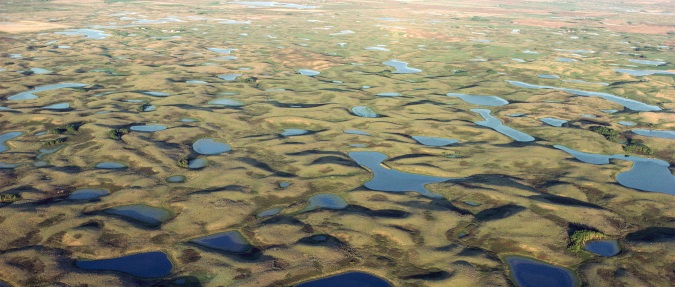 For more than 80 years, sound science has led to the success of Ducks Unlimited’s (DU) mission to conserve and restore North America’s wetlands and waterfowl habitat.
For more than 80 years, sound science has led to the success of Ducks Unlimited’s (DU) mission to conserve and restore North America’s wetlands and waterfowl habitat.
While we commend the goal of the regulatory agencies to strive for a clear and practical definition for Waters of the United States (WOTUS) as it applies to the Clean Water Act, we are deeply concerned that the 2019 Proposed Revised Definition of WOTUS and the accompanying analysis are not consistent with existing science.
There is clear scientific evidence that shows wetlands provide important societal benefits to our nation’s waterways by reducing flood damage, improving water quality, providing habitat for fish and wildlife and sustaining economic activities that depend on clean water.
“It is clear the Proposed Rule will exclude geographically isolated wetlands from Federal jurisdiction under the Clean Water Act,” said DU CEO Dale Hall. “This includes prairie potholes, playa lakes and other wetlands critical for waterfowl breeding and migration. These wetlands also play integral roles in the life cycle of many other species and in recharging regional groundwater and reducing impacts of floods.”
While DU champions voluntary, incentive-based conservation to preserve and restore wetland habitats, we also recognize the importance federal regulations play in maintaining the health of our nation’s waters as well as the diverse wetlands-dependent wildlife treasured by generations of Americans.
DU seeks a balanced approach to conservation and has historically advocated for WOTUS rules that are strongly supported by science but do not incumber farmers with additional regulation or uncertainty. We believe our agricultural partners share our goal of preserving water, soil and wildlife resources while feeding the world, and thus are the best stewards of their own land and water resources. We support the longstanding exemptions in the Clean Water Act for normal agriculture practices and will continue to work to ensure they are legally maintained on working lands.
Finally, many of DU’s routine on-the-ground activities are regulated under the Clean Water Act. In light of our extensive experience with navigating the regulatory process, we have significant concerns about how this Rule will be implemented given the uncertainty associated with regulatory definitions proposed in the Rule.
DU scientists, conservation staff and policy experts are carefully reviewing the Proposed Rule to evaluate the potential impacts to wetlands, waterfowl and to DU’s habitat conservation mission. We will submit formal comments on the Proposed Rule ahead of the April 15, 2019 deadline, however, we urge the agencies to extend the comment period to allow for robust comments and analysis.
For more information visit www.ducks.org/wotus.
